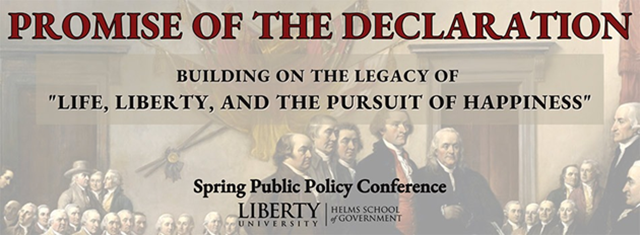Location
Constitutionalism
Level of Education
Faculty
Keywords
Politics, Public Policy, Civility, Rhetoric
Presenter Names and Speeches.
Timothy P. O'Brien, Ph.D. and Melissa O. Stewart, Ph.D.
Abstract
“As you stand for your values do so with gentleness and respect—that’s how we move our country forward.”
Mike Pence, 48th Vice President of the United States of America (2017-2021)
Since the founding of the United States of America, political discourse has often taken an unpleasant and nasty tone. Partisan disagreement concerning public policy is normal and policy should be the subject of vigorous debate. Disagreement, bickering, and even fights on the floor of Congress, are not new phenomena. However, today there is a growing sense in the country that civility and intolerance are on the rise. This study will focus on the relationship between individual isolation, defined as “the collapse of American community” outlined by Putnam (2000), and political incivility. This collapse of the community is evident in many phases of American society today, including the declines in volunteerism, organized religious worship and participation, and social interaction between neighbors, friends, and family. The Declaration of Independence provided for and gave Americans “the legacy of ‘Life, Liberty, and the Pursuit of Happiness.’”
Mike Pence, 48th Vice President of the United States said, “For democracy to thrive, you have to apply a heavy dose of civility.” And, “democracy” was the profound “Promise of the Declaration.” This inquiry surrounding individual isolation and political incivility leads to numerous questions, among them are:
- What affect has citizen isolation had on the willingness of elected officials to compromise with members of the opposite party?
- What affect has citizen isolation had on elite civil discourse?
- Has increased exposure to incivility merely uncovered those uncivil elements that have always been part of our discourse?
- How does partisan extremism and incivility today compare to past political eras?
- How has political rhetoric evolved since the Founding?
These and other questions lend themselves to empirical scrutiny, however, this article will explore the nexus between individual isolation and political incivility and answer the question: How has increased individual isolation affected political rhetoric and civility in the United States since the 1970s?
Included in
American Politics Commons, Other Political Science Commons, Other Public Affairs, Public Policy and Public Administration Commons, Policy Design, Analysis, and Evaluation Commons, Policy History, Theory, and Methods Commons, Public Affairs Commons, Public Policy Commons, Social Welfare Commons
Political Rhetoric and Civility: A Challenge to “the Legacy of ‘Life, Liberty, and the Pursuit of Happiness’”
Constitutionalism
“As you stand for your values do so with gentleness and respect—that’s how we move our country forward.”
Mike Pence, 48th Vice President of the United States of America (2017-2021)
Since the founding of the United States of America, political discourse has often taken an unpleasant and nasty tone. Partisan disagreement concerning public policy is normal and policy should be the subject of vigorous debate. Disagreement, bickering, and even fights on the floor of Congress, are not new phenomena. However, today there is a growing sense in the country that civility and intolerance are on the rise. This study will focus on the relationship between individual isolation, defined as “the collapse of American community” outlined by Putnam (2000), and political incivility. This collapse of the community is evident in many phases of American society today, including the declines in volunteerism, organized religious worship and participation, and social interaction between neighbors, friends, and family. The Declaration of Independence provided for and gave Americans “the legacy of ‘Life, Liberty, and the Pursuit of Happiness.’”
Mike Pence, 48th Vice President of the United States said, “For democracy to thrive, you have to apply a heavy dose of civility.” And, “democracy” was the profound “Promise of the Declaration.” This inquiry surrounding individual isolation and political incivility leads to numerous questions, among them are:
- What affect has citizen isolation had on the willingness of elected officials to compromise with members of the opposite party?
- What affect has citizen isolation had on elite civil discourse?
- Has increased exposure to incivility merely uncovered those uncivil elements that have always been part of our discourse?
- How does partisan extremism and incivility today compare to past political eras?
- How has political rhetoric evolved since the Founding?
These and other questions lend themselves to empirical scrutiny, however, this article will explore the nexus between individual isolation and political incivility and answer the question: How has increased individual isolation affected political rhetoric and civility in the United States since the 1970s?



